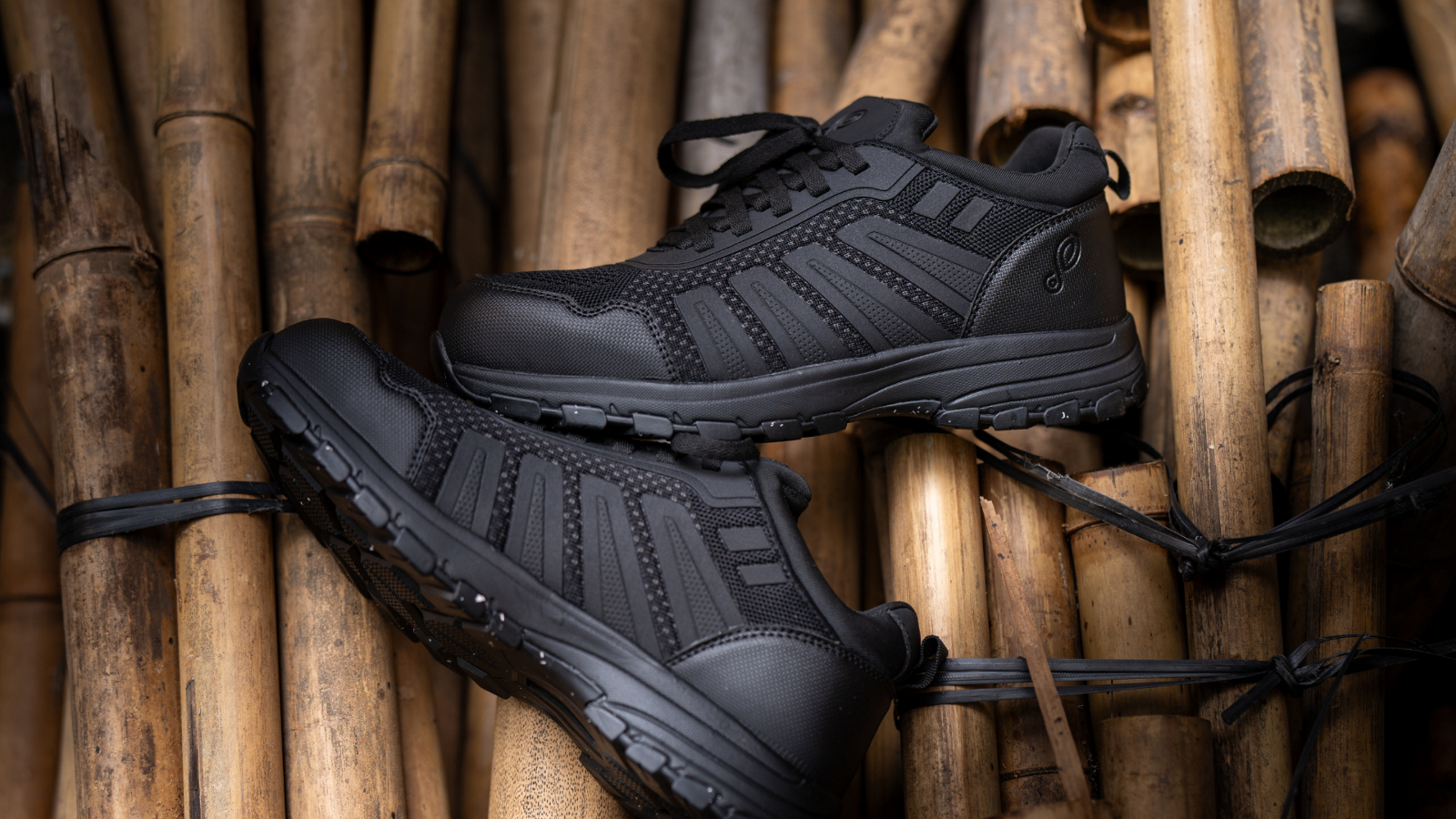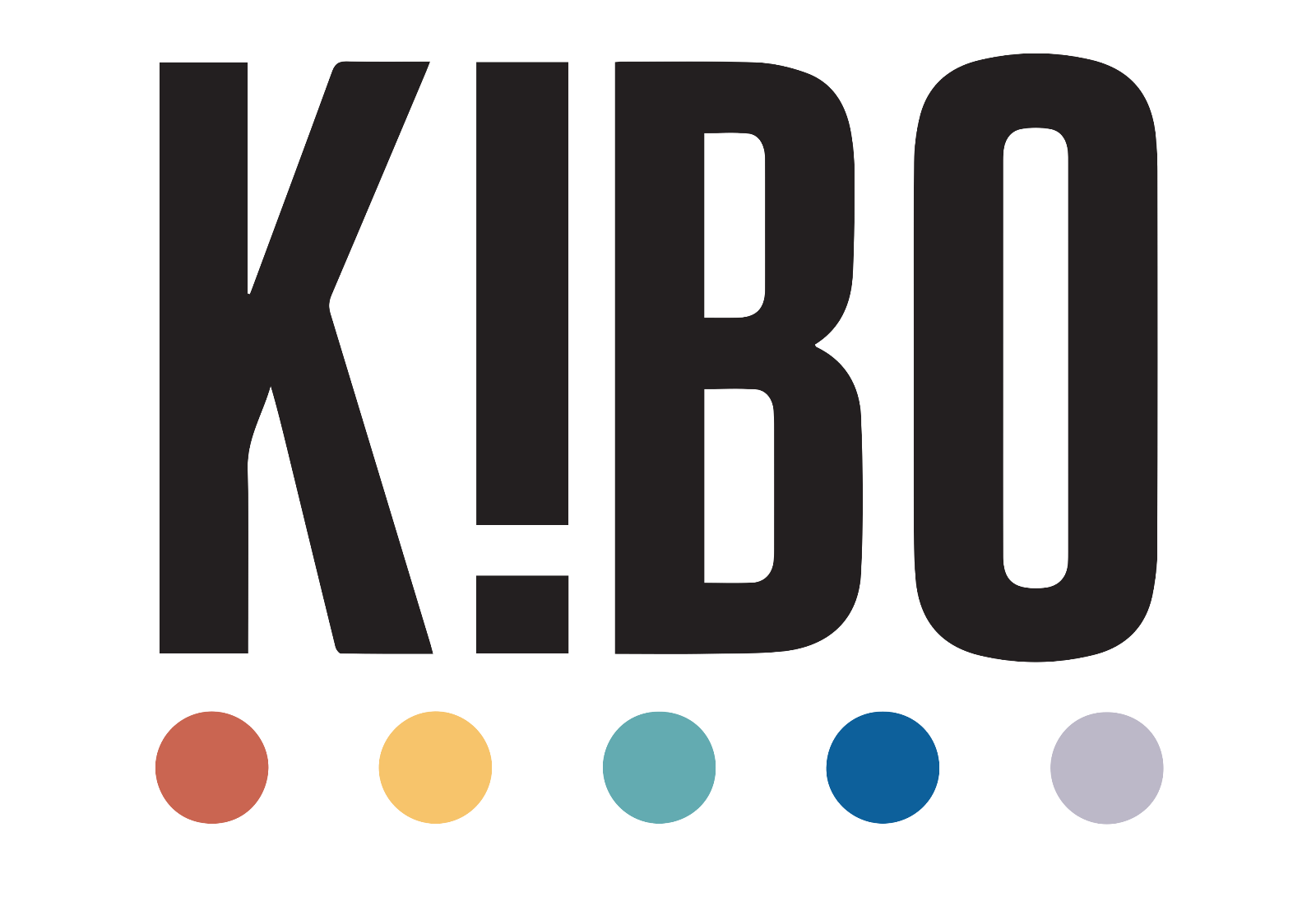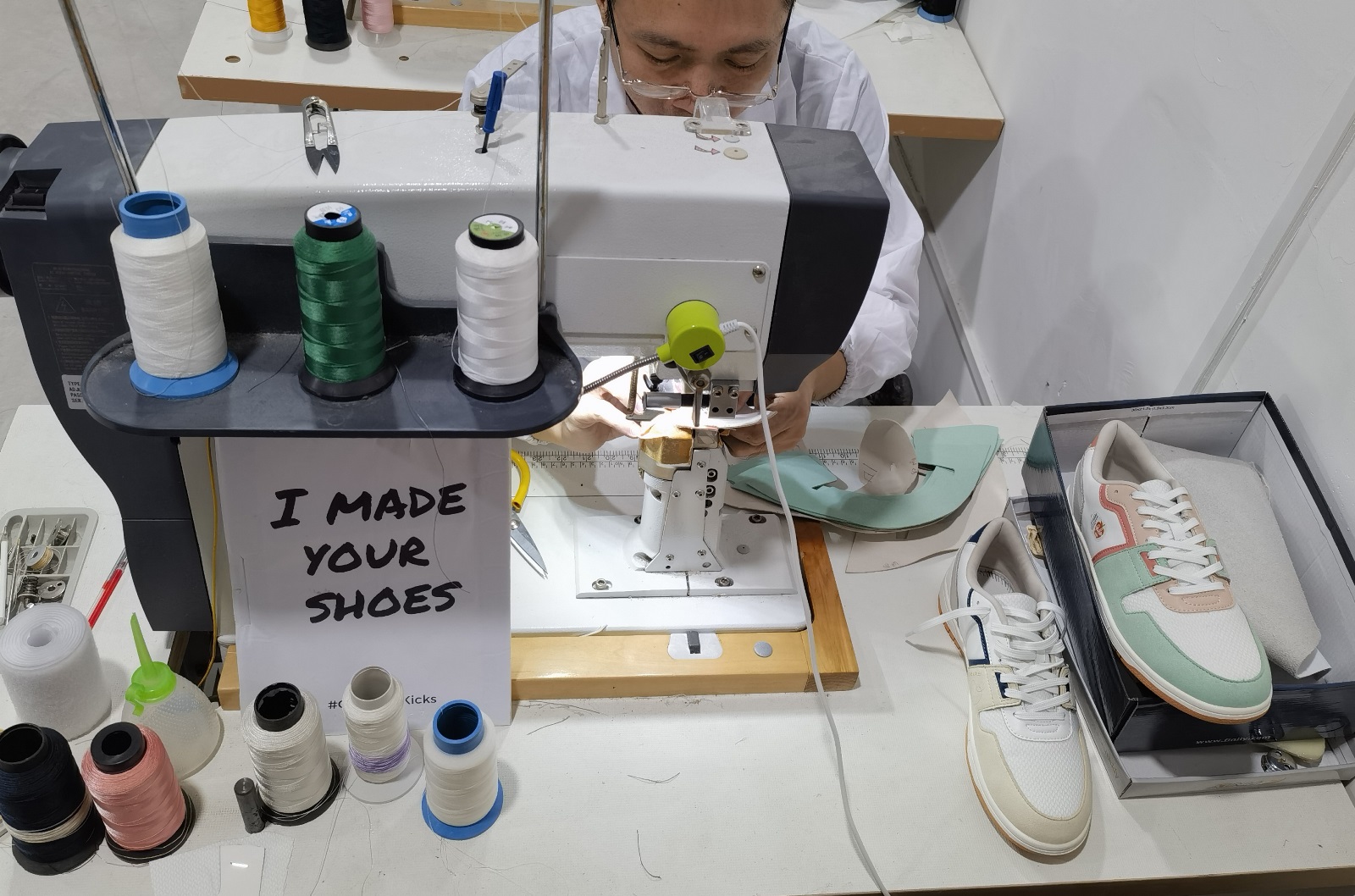From apple waste to leather offcuts, Kibo is transforming discarded materials into certified safety shoes—proving that frontline workers don’t have to choose between comfort, protection, and sustainability.
Challenge
Safety shoes are one of the most common forms of industrial workwear, worn daily by millions in construction, logistics, and hospitality. But behind their protective exterior lies a heavy footprint. Conventional pairs require resource-intensive virgin leather and plastics, involve toxic chemicals such as chromium in tanning, and consume enormous amounts of water. Once worn out, they are discarded, adding to global footwear waste that already exceeds 20 billion pairs annually.
For workers, shoes are often heavy and uncomfortable—functional but far from ergonomic. For the planet, every pair compounds waste and pollution. The industry has long accepted this trade-off between protection and sustainability.

Solution
KIBO set out to merge sustainability and safety in footwear. Drawing on more than 50 years of collective expertise, the company designs certified safety shoes from upcycled materials such as apple waste, leather offcuts, and recycled plastics. These materials are traceable and certified, with blockchain-backed data accessible online to ensure transparency.
The shoes are designed for durability, comfort, and protection, meeting international safety standards while reducing environmental impact. Unlike conventional workwear, KIBO integrates sustainability into every stage: sourcing, production, packaging, and end-of-life solutions such as upcycling outsoles into factory fuel in Hong Kong.
Its dual-brand model brings the solution to different markets: Light Treads, focused on B2B partnerships with corporates and schools, and KIBO, its consumer-facing line retailing in Hong Kong and Singapore. Together, they expand the reach of sustainable footwear into sectors often dominated by low-cost, unsustainable products.
Between October 2022 and October 2024, KIBO sold 6,500 pairs of sustainable footwear.
Impact
Compared to conventional leather shoes, this avoided 226,850 kilograms of carbon emissions, saved 49,335,000 litres of water, repurposed 585 kilograms of plastic waste and 10,400 square feet of leather offcuts, and eliminated the use of 260 kilograms of chromium. Even its packaging reduced impact, with over a metric ton of recycled paper replacing virgin pulp. These results, independently reviewed by KPMG during due diligence, provide clients with confidence that the company’s sustainability claims are both credible and verifiable.
For businesses, KIBO delivers more than shoes—it provides measurable ESG data linked to every order, helping partners meet their sustainability reporting requirements. For workers, the difference is felt daily: lighter, more comfortable footwear that still delivers maximum protection. Commercially, the model has proved resilient. In the last financial year ending March 2025, KIBO generated approximately USD 500,000 in revenue through a mix of corporate contracts, school uniform partnerships, retail distribution, and direct-to-consumer sales.
Future outlook
Looking ahead, KIBO plans to deepen its footprint in Asia. Over the next 12 months, its Light Treads line will expand into at least ten major hotel groups in Hong Kong and Singapore, building on clients such as Rosewood and Resorts World. By 2026, the company intends to pilot AI-enabled smart insoles that track movement and wellness in workplaces and eldercare facilities, merging sustainability with technology in an entirely new way. By 2027, it aims to expand into five ASEAN markets, with large-scale distribution planned in Indonesia.
Through every step, KIBO is demonstrating that footwear does not have to be disposable or resource-intensive. By giving waste new life, it is protecting both frontline workers and the environment, showing that safety and sustainability can, quite literally, walk hand in hand.

Launched in 2020, KIBO was born with a mission to give waste new hope and life second chances. KIBO, means ‘hope’ in Japanese, and brings a new promise to create a pair of sneakers that are ‘Kind to the planet & kind to your feet.’ As an advocate for transparency, KIBO ensures every step is made with transparency and fair trade in mind. For every pair sold, a portion of the proceeds is donated to Compassion First, a not-for-profit organization that works tirelessly to help victims of human-trafficking in Indonesia.
Learn more about KIBO through their website. To collaborate or connect, reach out directly to our SL25 team.
Connect














